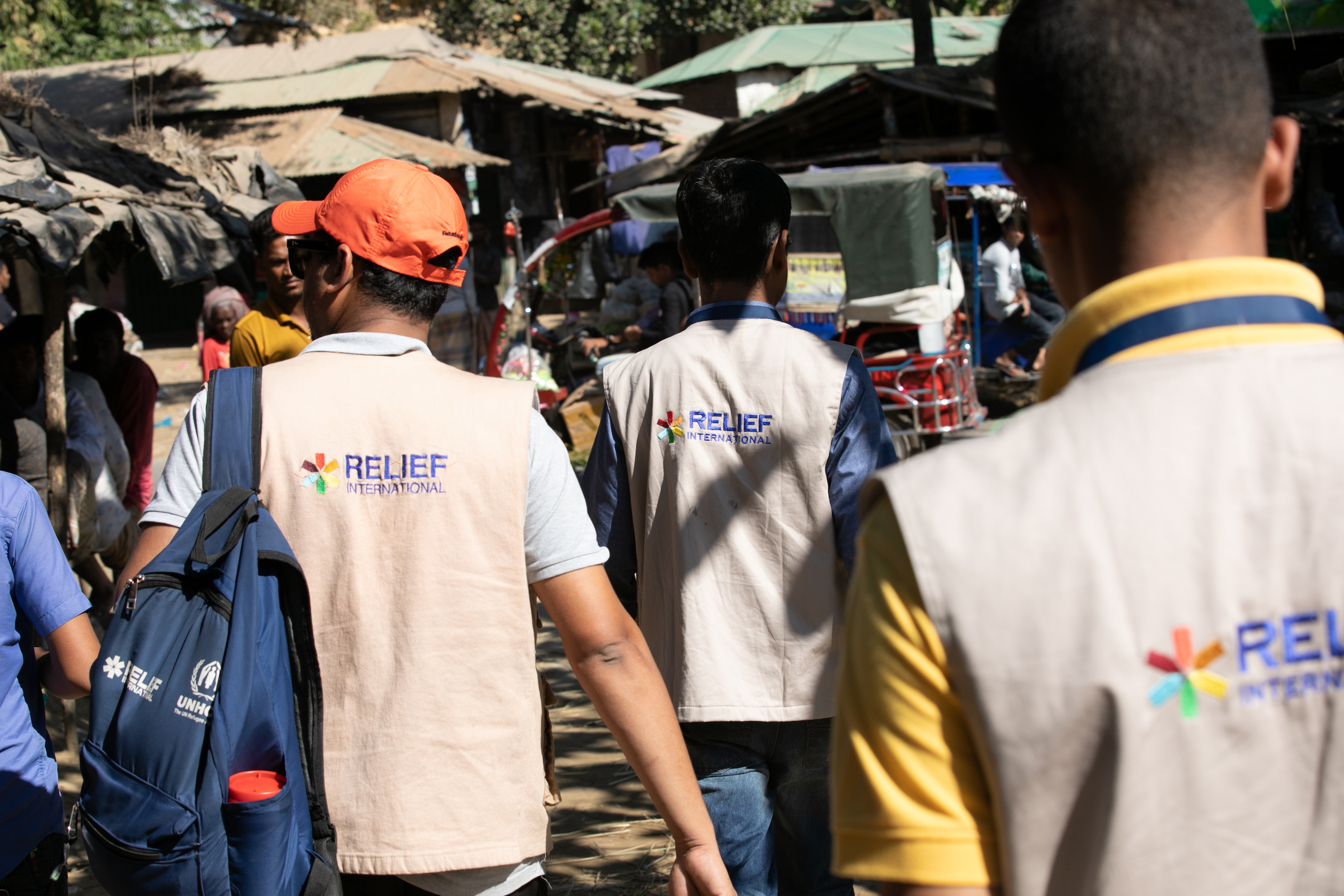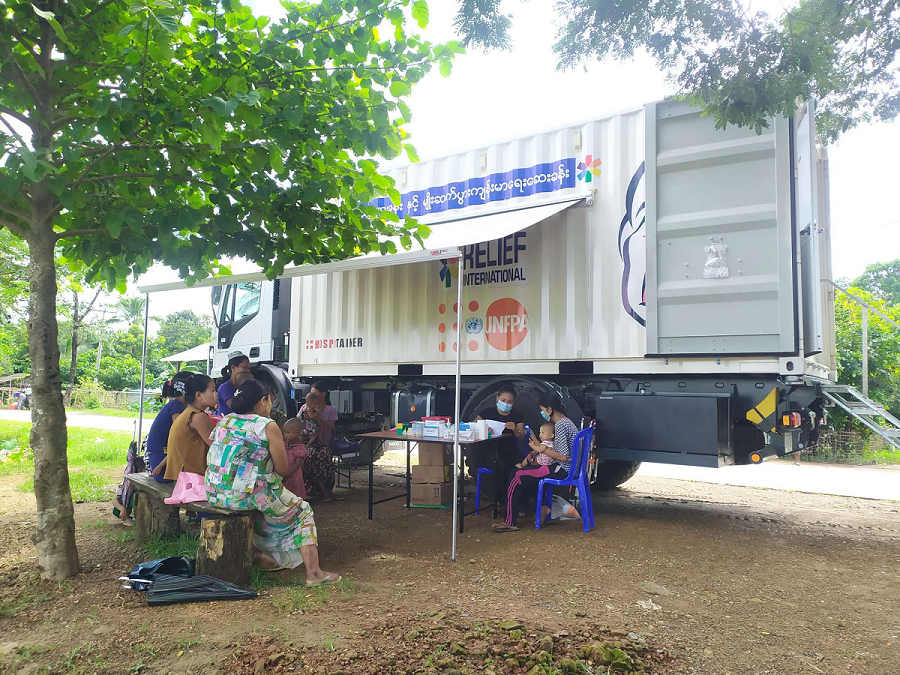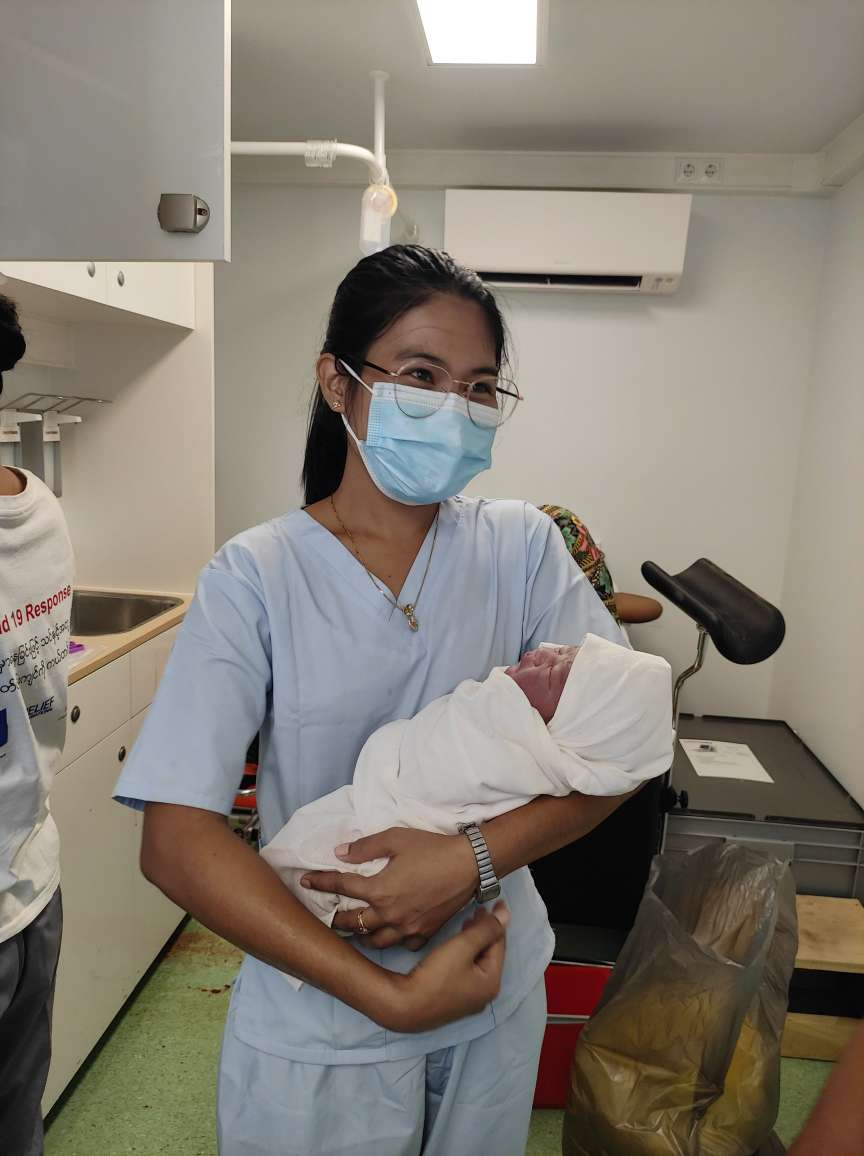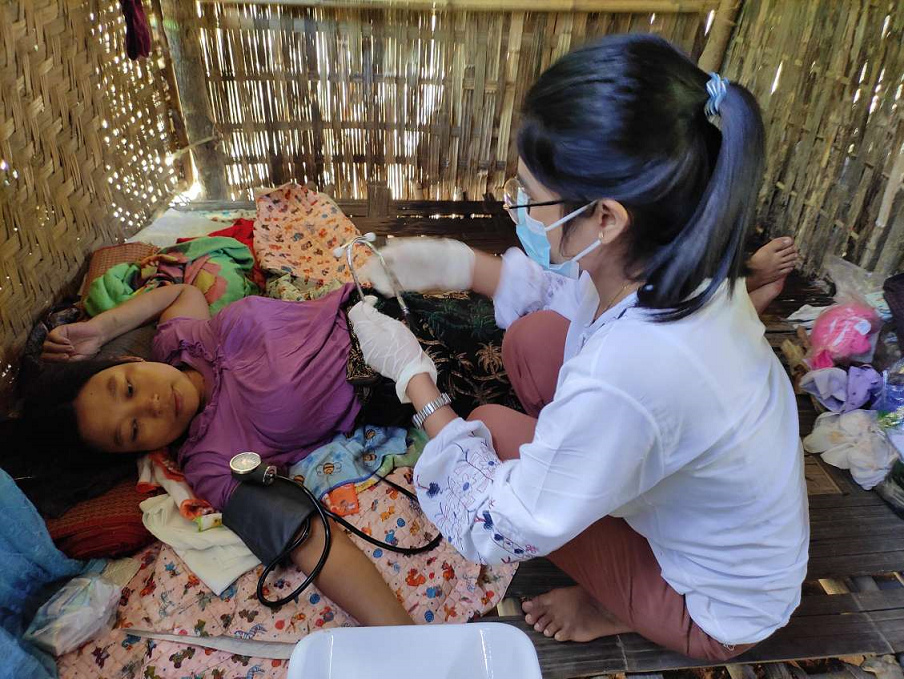“I started having labor pains early in the morning,” re-counts Daw Yee Yee Win.
“I was trying to give birth since the early morning at home with the help of a community health worker. Labor pains deepened steadily, and yet there were no signs of progress. At this point our neighbors told us that the Relief International mobile delivery unit at Poung Toke village was open and we should seek help from them.”
Daw Yee Yee Win had previously given birth to three of her children at home but painfully lost one child at birth. This time, an emergency delivery conducted at the Relief International mobile delivery unit saved her life and that of her baby.
When disasters strike and conflicts erupt, families often leave everything behind to seek a safe haven. They face myriad difficulties, and may depend on humanitarian assistance for food, water, shelter. Often health services are frequently limited or completely unavailable.
This is the situation in Daw Yee Yee Win’s village in Rakhine state, Myanmar. It has become a complex crisis where protracted conflict coupled with cycles of natural disasters have forced nearly one million people to flee their homes.
In situations like this, life can become a misery for children, nursing mothers and especially for pregnant women like Daw Yee Yee Win.
An estimated 500 women die every day due to pregnancy or child birth complications in regions affected by humanitarian disasters.
Globally, more than half of maternal deaths are reported in fragile settings.
“Having a baby at home without skilled support is common in this area because pregnant women do not usually have access to health care and even when they do, it is risky to travel across villages to hard-to-reach health facilities,” says Relief International’s Dr. Mg Mg Oo.
Reproductive health services, and particularly safe delivery services, are a matter of life and death during crises.
Women and children in fragile settings are more likely to die because women giving birth are often assisted by untrained birth attendants, family members or on rare occasions, without any assistance at all.
As Daw Yee Yee Win’s labour pains continued, the community health volunteer who was supporting her reached out to the doctor at the RI mobile delivery unit for assistance.
“A few minutes later, the doctor and the midwife from the unit came to my rescue,” remembers Daw Yee Yee Win. “They hurriedly rushed me to the unit where the doctor and nurses had to carry out an emergency delivery.”
"My baby was born within 30 minutes of my arrival at the unit,” recalls Daw Yee Yee.
To prevent and reduce maternal and infant mortality cases, the UNFPA is supporting three mobile delivery units in three states of Myanmar. Relief International runs the unit in Rahkine State that Daw Yee Yee used, to ensure reproductive health services such as safe delivery services are available to all women and girls in the area.
“The mobile delivery unit aims to cover areas with no healthcare and provide a range of reproductive health services. It is flexible though—the team also provide basic primary healthcare services,” notes Lydia Banfield, RI Health Program Manager in Rakhine, Myanmar. “We also train the community on best health practices while they wait to be consulted at the unit.”
The unit is fitted with a treatment area, delivery room and a recovery area. It provides privacy for consultations for a full range of SRHR services: ante and post-natal care, family planning counseling, post-abortion care, clinical care for gender-based violence survivors, and Basic Emergency Obstetric and Newborn Care. Patients with complicated conditions are referred to static health facilities for follow-up care and more advanced treatment.
“My baby and I were lucky” says Daw Yee Yee. “The umbilical cord of my child was wrapped around the neck of the baby. The doctors at the mobile delivery unit were needed for the delivery to be successful.
“After giving birth, I was exhausted; I took a rest in the delivery unit recovery room and received all the treatment and care I needed.”
“All my previous children were born at home. I, however, lost my third child at birth because I could not access regular antenatal care,” she narrates thoughtfully. “This time, I received regular care, and with the support of Relief International, my baby was born, and my husband and I did not spend money for this service.”
“I now get the necessary treatment for me and my baby. The doctor and the nurse explained how I should care of my baby, including the importance of exclusive breastfeeding and family planning,” says Daw Yee Yee. “Thanks to Relief International, my baby and I are doing just fine.”

RI in Myanmar
In 2021, we provided 48,000 health consultations to people in Myanmar.


